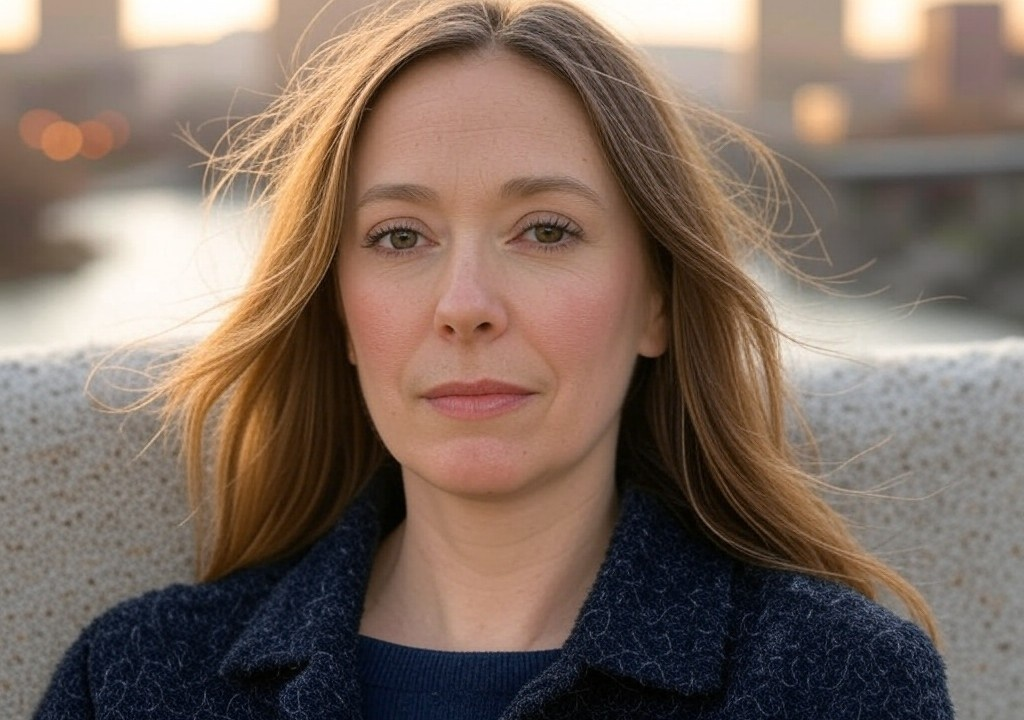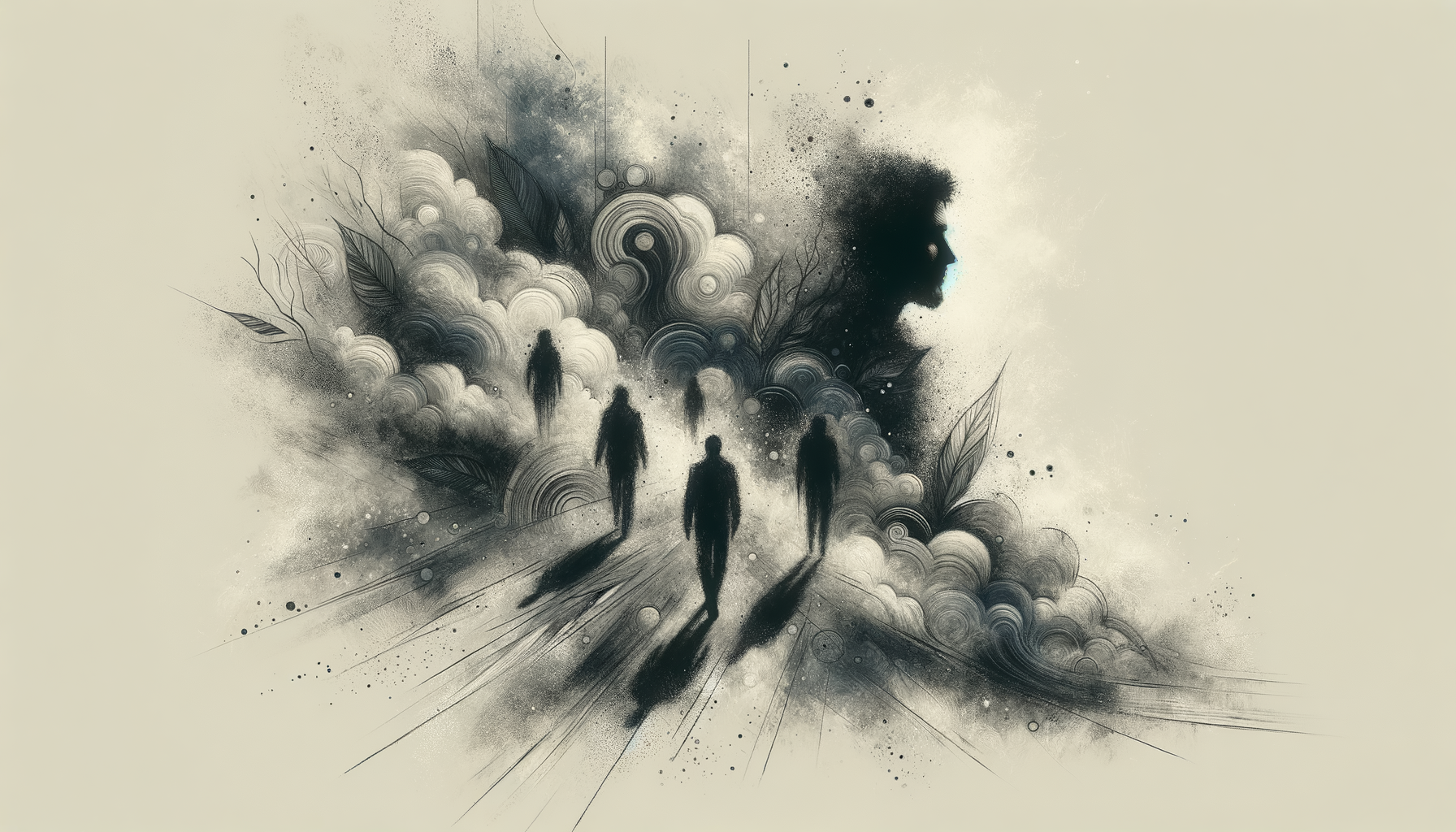It starts with the gentle question everyone asks when you meet them or, you know, find yourself awkwardly trapped in an elevator: “What’s your name?” Simple, straightforward, right? But when you’re named Leslie, there’s a little more explanation involved. “Leslie Woodruff?” people say, almost like they’re trying it on for size. And inevitably: “That’s such a strong name. Where’s it from?”
What they don’t know is how loaded my response to that question can be. A name like mine comes with stories, histories, and irritating Starbucks baristas who routinely think I said “Lexie.” (I did not, Jared.) But if dating and relationships have taught me anything, it’s that names—how they’re given to us, how they’re interpreted, and how we use them—can shape our identities and show the world what we value. So let’s talk about names: their baggage, their beauty, and how much they really matter when it comes to putting yourself out there.
Not Just a Name—A Legacy
Here’s the thing: growing up as Leslie Woodruff in Boise, your name isn’t just your name. It’s your grandparents’ name, your parents’ name, and the “Is this the same Woodruff family that owned the potato farm out by Eagle?” name. I’ve never been able to throw my name around casually without someone recognizing it as a piece of Idaho history. It’s like being the lead character in a Netflix period drama, except with much more dirt under the nails and fewer shots of sweeping prairies.
And yet, despite all that history, the name “Leslie” was actually chosen for me because my mom read it in a baby name book one hungover Saturday morning at the brewery. She thought it sounded “independent and cool.” (Thanks, Mom.) Little did she know that her spur-of-the-moment pick would go on to inspire thousands of bad dad jokes involving "Leslie Knope" (icon) and “that one guy from Parks and Rec whose name is actually Leslie” (less iconic).
Point is, even if your name was randomly selected out of a haze of hops and ambition, people—friends, colleagues, dates—read into it. They assume things about who you are based on that clump of syllables. Leslie? Oh, she must be unshakeable, no-nonsense. Frank? Down-to-earth. Ambrosia? Poised to start either a skincare empire or a girl gang—possibly both. My name alone has convinced more than a few Tinder matches that I’m some sort of earthy, homegrown Idaho badass. (Spoiler: I do not ride horses, but they don’t need to know that upfront.)
What Does Your Name Say About You on a (First) First Date?
Names are complicated things. Like that awkward moment in a café when your date says, “I’m Dakota, but everyone calls me Koda,” and you internally wrestle with whether you’re about to date a human or a Pixar sidekick. Because a name? It carries weight.
For example, when I was in Chicago for my journalism fellowship, I went on a first date with a guy named Torvald (no joke). Torvald had a Norwegian accent and worked in tech, and while that should’ve been a green flag, something about his name made me picture either a Viking shield or spreadsheet software. He turned out to be neither, but it proves my point: names make impressions, and those impressions aren’t always fair.
On the flip side, I’ve dated Matts, Chrises, and Ryans—names so neutral they almost felt like blank slates. And honestly? Sometimes that sameness can feel safe. But safe doesn’t always equal connection. After all, what’s in a name, Shakespeare asks? Well, it turns out, a lot more baggage than Romeo bargained for.
Owning Your Name (Or Tweaking It, If You Want)
For those of us with complicated relationships to our names, it’s tempting to go by something cooler, sleeker, or easier to spell. (Looking at you, every Jayden who ever became a “Jay.”) But here’s the empowering part: your name, like your identity, is yours to bend, tweak, and remix.
Some tips for owning it:
- Get Playful: Hate your full name? Try casual nicknames for size. Leslie, for example, transforms into "Les" when I’ve had just enough wine to feel like The Cool Girl of family reunions. Or “Woodruff,” which sounds a little legendary on its own.
- Clarify With Confidence: If people constantly mess up your name—whether they’re Starbucks baristas or Bumble matches—there’s nothing shameful about correcting them. “It’s Leslie, not Lexie,” said with a smile, keeps things light and reminds people that names matter.
- Reclaim It: Maybe you’ve never loved what your name says about you. That doesn’t mean the world automatically gets to decide who you are. Bring your background, your quirks, and your full self into the room. Your name’s just the icing—you’re the cake.
And if your name feels like a barrier in the dating world? Flip the narrative. The best people will want to know more about your name—even the quirks—and what it means to you. The wrong ones? Well, they’re probably Torvald, still wondering why you ghosted after hearing about his two-hour coding bootcamp.
Names in the Wild: Romance Edition
In dating and relationships, names play a surprisingly sneaky role. There’s the pet-name phase, which always starts cute (“Hey there, Sugarbean!”) but is one word away from “Babezilla.” There’s the dreaded “Your Ex’s Name” situation, where your new match’s name overlaps with the ghosts of relationships past. And then there’s meeting The Family Name, where you suddenly learn your significant other’s full, unabridged real name. (“Wait, your middle name is Ezekiel? Why did you hide this from me?”)
When I was two months into dating someone, he started calling me “Red.” At first, I thought it was a nod to my hair. Turns out it was actually from his favorite Led Zeppelin song (so much worse, right?). But in hindsight, it was an adorably weird, specific name that told me a lot about how he saw me. Nicknames aren’t just quirks—they’re connections. They signal the point when someone stops seeing you as just another Leslie or Mia or Dakota and starts building a world around who you really are.
A Name Is Just the Start
Here’s the bottom line: your name is one of the first threads that ties your identity together—and relationships? They’re an endless tapestry of those threads. A good name—or the story behind it—can spark a conversation. It can set the tone for who you think you are, whether you’re searching for a partner or deep in the weeds of building a life with them.
But remember: your name is just a hook, not the whole melody. It’s not the heavy-duty anchor that keeps you stuck to someone else’s definitions. It’s fluid and personal and, ultimately, yours.
So whether you’re a Koda, a Torvald, or a classic Leslie, wear it proudly—or wear it softly. Because, at the end of the day, what really matters is how you let the world see the person behind the letters. And sometimes, a name is just the beginning of the story you’re about to tell.




















